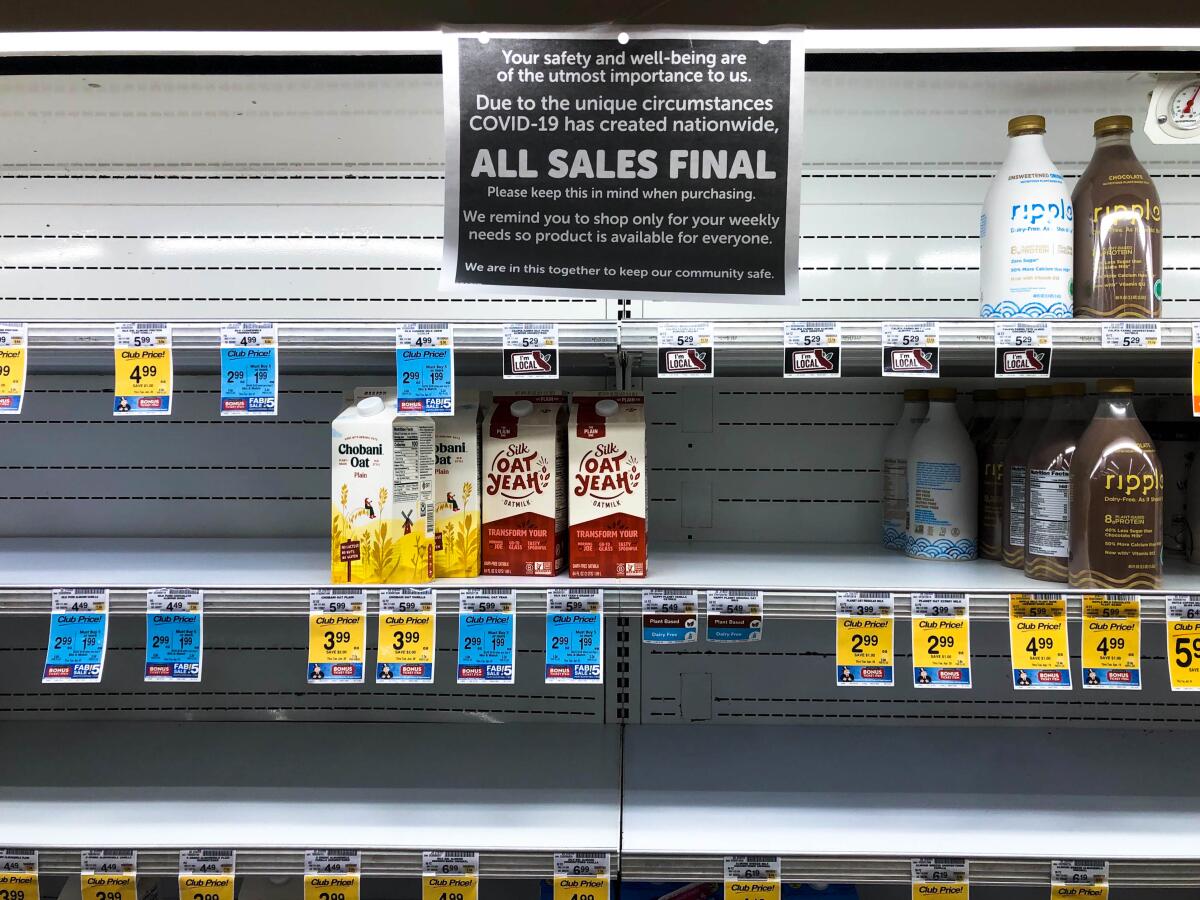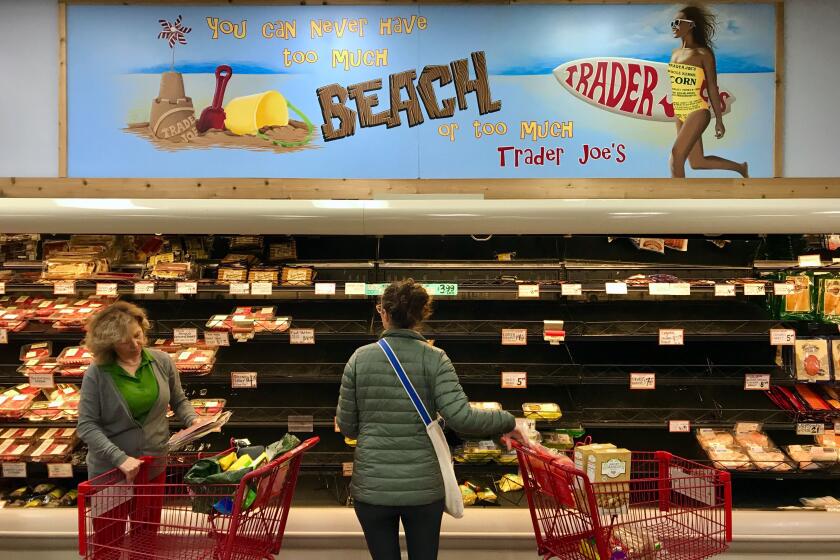Canât find pasta or cat food? Blame Omicron for empty store shelves

Social media sites are full of photographs of empty grocery store shelves, and the head of one of the biggest U.S. supermarket chains says the situation will take weeks to improve.
Albertsons Cos. had been expecting that supply outages would be improving by now, but âOmicron has put a bit of a dentâ in that, Chief Executive Vivek Sankaran said Tuesday. As a result, the company is still contending with a variety of products that are out of stock after months of similar headaches.
âWe would expect more supply challenges over the next four to six weeks,â he said on a conference call with Wall Street analysts after Albertsons reported earnings. âAs a business weâve all learned to manage it, weâve all learned to make sure that the stores are still very presentable â give the consumers as much choice as we can get.â
Follow a container of board games from China to St. Louis to see all the delays it encounters along the way.
Omicron is exacerbating disruptions in food supply chains that are already stressed. A rise in U.S. infections means more workers are getting sick at farms, factories, distributors and retailers, crimping the flow of goods to shoppers just as the variant prompts people to eat at home more. Port congestion and winter weather in parts of the country arenât helping, either.
Online searches are surging for basic products, reflecting consumer anxiety over supplies. As of Tuesday afternoon, the list includes chicken, potatoes, spinach, pasta, meat, lettuce, eggs, cream cheese and cat food.
Shortages appeared most acute for food compared with packaged goods such as cleaning and beauty supplies, according to data from Chicago-based market research firm IRI for the week that ended Jan. 9. States with the biggest shortages of food and beverages included Alaska, Alabama, Hawaii, Mississippi and West Virginia.
The Consumer Brands Assn., which represents makers of packaged goods, called on the government to facilitate more coronavirus tests.
As coronavirus spreads, the Los Angeles Times visited grocery stores and supermarkets throughout the L.A. area Friday between noon and 3 p.m. Hereâs what we found.
âThe supply chain is fragile and unable to absorb further shocks â whether winter storms or, far more impactfully, Omicron â and thatâs showing up as empty shelves,â said Geoff Freeman, the trade groupâs CEO. âIn the near term, that means supporting workers who are essential to supply chain continuity. Testing is the most critical need.â
More to Read
Inside the business of entertainment
The Wide Shot brings you news, analysis and insights on everything from streaming wars to production â and what it all means for the future.
You may occasionally receive promotional content from the Los Angeles Times.












